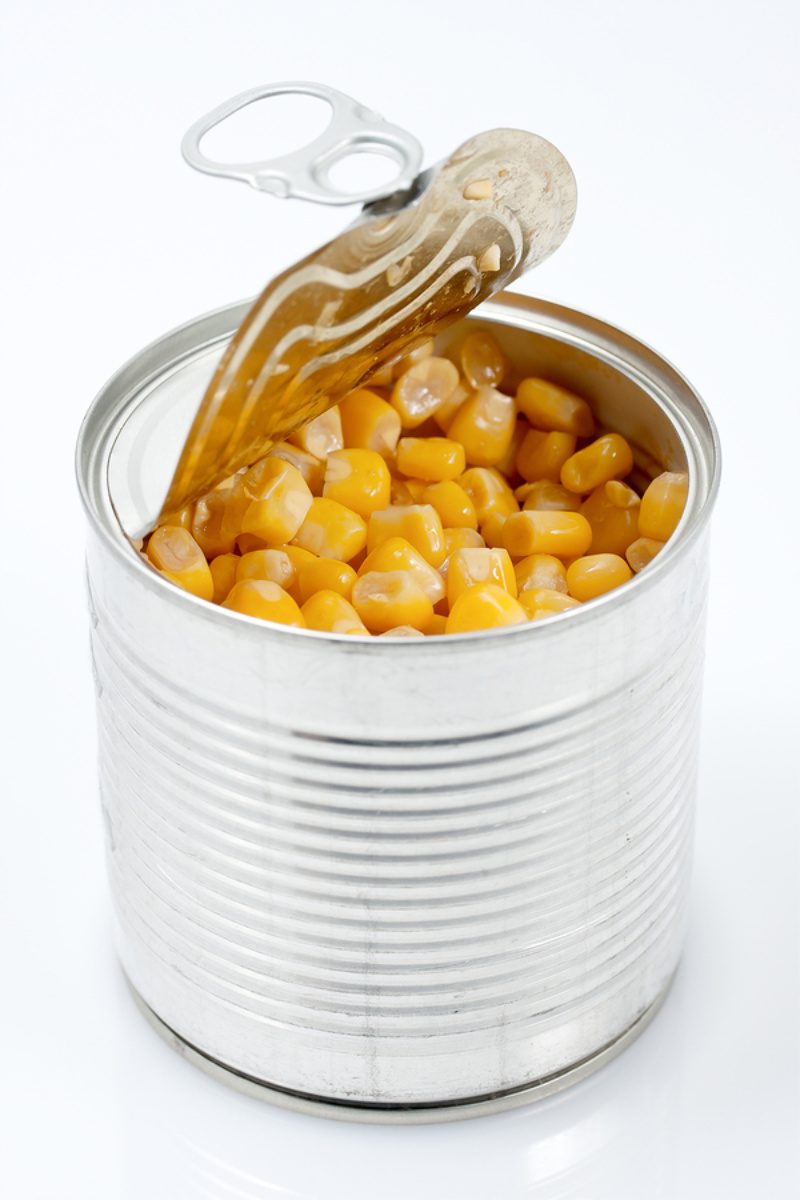Canned food goes back centuries, but it really grew in popularity during World War I as it was safe, easy meals for soldiers.
The food within didn’t spoil thanks to the airtight packaging. Today, canned foods remain a great food to have on hand due to the longevity of storage and low risk of bacterial contamination.
In 1987, Canned Food Month was created to bring awareness to the quality of canned foods. People often feel that canned foods are not good choices. There are smarter ways to buy canned foods so that they’re not bad choices.

Choose Low-Sodium Items
Look for items that contain reduced-sodium or don’t add sodium at all. Too much salt is unhealthy, but you can get low-sodium vegetables and soups and lower sodium intake that way. Rinsing off items like canned beans, canned corn, and canned peas also helps lower sodium.
When choosing canned fish like tuna or salmon, look for fish that’s packed in olive oil or water. Aim for low-sodium recipes.
Avoid Items With Little Nutrition
Avoid items that are high in sodium and saturated fat. As tasty as canned spaghetti and meatballs may be to your dad, it’s not a great choice. Homemade spaghetti and meatballs would be better.
Learn to pay attention to nutrition labels. Look at the sodium levels, added sugar, and saturated fat. Pick canned foods that have fiber, protein, and antioxidants like vitamin C and vitamin E.
Stock Up on Canned Beans and Tomatoes
-Canned beans are one of the best-canned items to keep on hand. You can turn canned beans into a quick and easy meal. They’re high in fiber and are a good source of protein.
Toss some cooked quinoa with canned chickpeas, fresh lemon juice, olive oil, chopped fresh basil, diced red pepper, diced red onion, and serve that for a quick lunch.
-Canned tomatoes are also worth keeping on hand. Again, aim for no-salt or low-sodium tomatoes. Instead of buying jarred pasta sauces that often have added sugar, make your own quick tomato sauce with canned diced tomatoes, canned tomato puree, chopped fresh vegetables, and fresh basil.
Once you’ve stocked your parents with canned vegetables that meet their dietary needs, make sure they’re supported by meal preparation services. If they rarely cook meals, it’s time to hire caregivers to make sure they’re eating home-cooked meals that use a mix of fresh foods and some canned items.
Caregivers can help your parents read labels in grocery stores, help them choose high-quality and nutritious canned foods, and make meals using them. Call a home care agency to find out more about caregivers and the services they offer.




